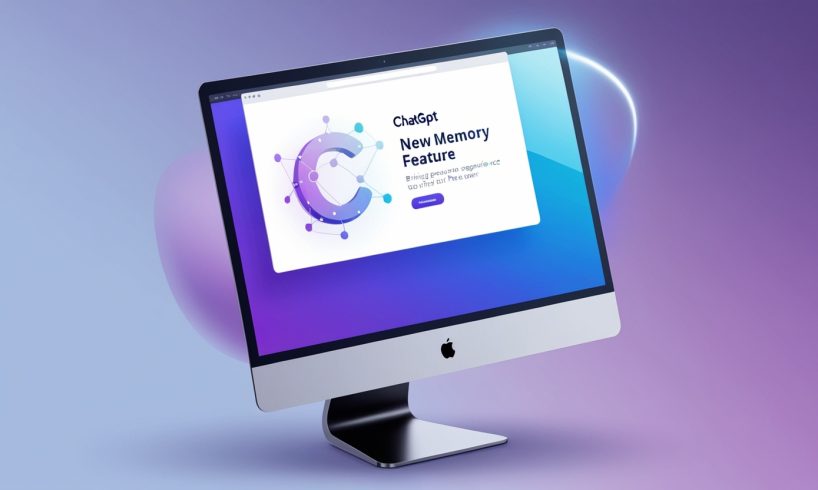
OpenAI has introduced one of its most anticipated updates to ChatGPT: the Memory feature is now available to free-tier users. This marks a major shift in how users interact with the AI chatbot, enabling a more tailored and persistent user experience that was previously only accessible to paid subscribers.
What Is the Memory Feature?
The Memory feature allows ChatGPT to remember key facts about users across sessions. Unlike past interactions where the chatbot started fresh each time, ChatGPT can now retain details such as your name, writing preferences, goals, and frequently discussed topics. This means you won’t have to repeatedly explain your context or requirements in every session.
For example, if you often ask for social media post ideas in a casual tone or prefer your emails in a professional style, ChatGPT will gradually learn and adapt to these preferences over time. This not only saves time but also makes the AI feel more like a smart assistant who knows your working style.
How It Works
The memory functionality is not on by default. Users can choose to turn it on or off at any time. When memory is enabled, ChatGPT will start learning from your interactions such as your preferred language style, commonly asked questions, or repeated tasks like content generation or coding help.
A special memory management page is also accessible through settings. There, users can:
- View what ChatGPT remembers
- Delete specific memories
- Turn off memory entirely
- Reset all memories for a fresh start
Importantly, users will receive notifications when a new memory is created or updated, maintaining transparency.
Who Can Use It?
Previously reserved for ChatGPT Plus users, this memory feature is now being gradually rolled out to free-tier users in June 2025. OpenAI confirmed that all users, regardless of subscription, will have access to this feature by mid-June.
This democratization of personalized AI could significantly improve the productivity of casual users, students, freelancers, and small business owners who rely on the free version for day-to-day tasks.
Use Cases for Personalized AI
Here’s how the Memory feature can be a game-changer:
- Content Creation: Writers and marketers can have ChatGPT remember their brand voice or preferred formats for faster, consistent content generation.
- Education: Students can get personalized tutoring, with the chatbot recalling their subjects, weak areas, or preferred learning styles.
- Business Support: Freelancers and solopreneurs can use memory for recurring tasks—like generating invoices or writing proposals—without re-entering details.
- Everyday Assistance: Users can set reminders for preferences like dietary needs, travel plans, or even gift suggestions.
Privacy and Control
With privacy being a concern, OpenAI emphasizes user control. Memory is fully transparent and editable. Users are always informed when the bot remembers something new, and they can delete individual memories or reset everything.
Moreover, OpenAI assures users that memories are only used to improve the chatbot’s responses and are not shared or used for advertising.
Looking Ahead
This update represents a significant step toward AI personalization at scale. As more users gain access to the Memory feature, ChatGPT is transforming from a one-off assistant into a persistent, context-aware digital companion.
By bringing this feature to the free tier, OpenAI is also raising the bar for what users can expect from AI without having to pay. In the competitive landscape of generative AI tools, this move could significantly boost ChatGPT’s user engagement and loyalty.
The rollout of the Memory feature to free ChatGPT users is more than just a technical upgrade it’s a philosophical shift. By remembering you, your needs, and your style, ChatGPT becomes more than a chatbot; it becomes your AI.
Whether you’re a student, a creator, or a professional, personalized AI is no longer behind a paywall. Welcome to the next generation of conversational intelligence free, intuitive, and made just for you.

I am a person who is positive about every aspect of life.I have always been an achiever be it academics or professional life. I believe in success through hard work & dedication.
Technology Blogger at TechnoSecrets.com





